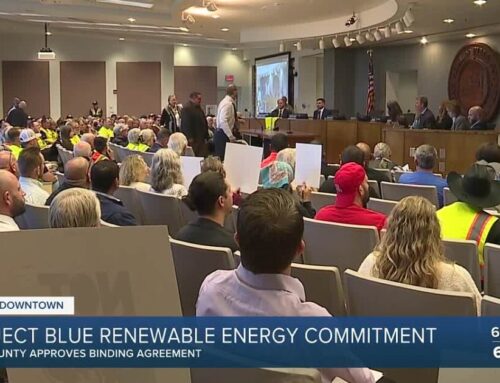Texas GOP Governor ‘Wants To Legalize Recreational Marijuana,’ Lieutenant Governor Claims
June 23, 2025
The governor of Texas “wants to legalize recreational marijuana,” the second highest official in the state said following the veto of a bill that would’ve banned hemp products containing THC—while implying that Gov. Greg Abbott (R) lied about his motivations for blocking the prohibition and recommending an alternative regulatory framework instead.
In a somewhat surprising rebuke of Abbott, the lieutenant governor held a press briefing on Monday where he sharply criticized his counterpart over the veto and related proclamation where he put forward various recommendations for regulating hemp. At several points, Lt. Gov. Dan Patrick (R) explicitly accused the governor of wanting to legalize adult-use cannabis because he rejected the hemp legislation.
“It puzzles me why my friend Greg Abbott—Governor Abbott—would at the last minute, at about 22 minutes after [11:00PM CT], decided to veto this bill,” the lieutenant governor said, referring to the midnight deadline for the governor to act on the bill on Sunday. “I know he gave the reasons in his proclamation, but our team simply doesn’t agree with those reasons.”
“One can only come to this conclusion, which surprises me: The governor of the state of Texas wants to legalize recreational marijuana in Texas,” he said. “That’s the headline, folks. Because that’s what his proclamation does now—whether it’s unintentional and he didn’t think through it, or whether it’s intentional—that’s the result of the veto.”
“Again, what Governor Abbott proposes is for us to legalize marijuana in Texas by regulating it,” Patrick said.
Taking questions from reporters, the lieutenant governor expressly challenged the governor to “put out a statement that you do not want to legalize marijuana for adults in the state of Texas, because that’s what either by default you’re doing or on purpose you’re doing.”
He also challenged the underlying legal argument Abbott described in his veto message, explaining that the federal law that legalized hemp provides that states can take steps to enact more restrictive regulations and he disputed the governor’s position that the law would ultimately be nullified in court due to litigation.
“Since when did we care who sued us when we passed a bill?” he said.
“What the federal law says is we can ban it. The only thing we can’t do is stop transportation through the state. You know, he actually mentions that in his proclamation,” Patrick said. “He mentions that one of the problems with this bill is about stopping transportation—but he didn’t write the entire sentence. He’s a lawyer, not me. It says you can’t pass a bill to ban transportation through a state.”
“That’s not what he wrote [about the state’s medical marijuana] program,” he said, referring to separate legislation to expand the state’s medical cannabis law that Abbott approved over the weekend. “He signed that bill. That’s worthless now.”
“What puzzled me was, the last time I talked to the governor in the Capitol before session, he said, ‘Don’t worry about the bill.’ He said, ‘Your bill is fine.’ That’s what he told me in front of witnesses,” the lieutenant governor said. “In fact, he asked a couple of lawyers on my staff—he said, ‘Can you give me some answers I can give because, when I sign this, I need some answers to give.’ So what happened? Who convinced him? On the staff, on the outside, to kill Senate Bill 3?”
It should be noted that, while the lieutenant governor is evidently irate over the veto and leveling accusations that Abbott is tacitly endorsing adult-use legalization, the governor had made clear he opposes that reform—and he’s even pushed back against local efforts to simply decriminalize cannabis for adults.
In his veto message, the governor did say that, rather than outright ban consumable hemp products, lawmakers should establish a regulatory framework that treats cannabinoids “similar to the way alcohol is regulated.”
Abbott proposed an extensive list of policy changes that he says he would support—and which the legislature will have the chance to enact during a special session the governor is convening next month.
“Legislators could consider a structure similar to the way alcohol is regulated, with strict enforcement by an agency like the Texas Alcoholic Beverage Commission,” he said, adding a list of recommended policies he wants to see lawmakers adopt that include age restrictions, zoning requirements and bans on public consumption.
Abbott on Sunday called a special session of a legislature to begin on July 21, saying in a press release that SB 3 and other vetoed bills would be placed on the agenda for further consideration.
Hemp advocates and stakeholders had delivered more than 100,000 petition signatures asking Abbott to veto the measure. Critics of the bill argued that the industry—which employs an estimated 53,000 people—would be decimated if the measure became law.
Texas lawmakers legalized the sale of consumable hemp in 2019, following enactment of the 2018 federal Farm Bill, which legalized the plant nationwide. That’s led to an explosion of products—including edibles, drinks, vape products and cured flower—sold by an estimated 8,000 retailers.
Military veterans advocates, including Texas Veterans of Foreign Wars, have also called on the governor to veto the hemp ban, saying it “would cause irreversible harm to communities across the state.”
Farmers have also said the prohibition would devastate a key sector of the state’s agriculture industry.
Meanwhile, a recent survey from a GOP pollster affiliated with President Donald Trump showed that Texas Democratic and Republican voters are unified in their opposition to the hemp ban bill.
Another poll commissioned the Texas Hemp Business Council (THBC) found that Texas Republican primary voters oppose the proposal.
On Saturday, the governor signed bill to significantly expand the state’s medical marijuana program with new qualifying conditions additional product forms and more dispensary locations.
—
Marijuana Moment is tracking hundreds of cannabis, psychedelics and drug policy bills in state legislatures and Congress this year. Patreon supporters pledging at least $25/month get access to our interactive maps, charts and hearing calendar so they don’t miss any developments.![]()
Learn more about our marijuana bill tracker and become a supporter on Patreon to get access.
—
Abbott separately signed a bill into law this month to create a state-backed research consortium to conduct clinical trials on ibogaine as a possible treatment for substance use disorders and other mental health conditions. The ultimate goal of the project is to develop the psychedelic into a prescription drug with federal Food and Drug Administration (FDA) approval, with the state retaining a portion of the profit.
The measure expands the state’s list of medical cannabis qualifying conditions to include chronic pain, traumatic brain injury (TBI), Crohn’s disease and other inflammatory bowel diseases, while also allowing end-of-life patients in palliative or hospice care to use marijuana.
Separately in Texas, a House committee approved a Senate-passed bill last month that would prohibit cities from putting any citizen initiative on local ballots that would decriminalize marijuana or other controlled substances—as several localities have already done despite lawsuits from the state attorney general.
Under the proposal, state law would be amended to say that local entities “may not place an item on a ballot, including a municipal charter or charter amendment, that would provide that the local entity will not fully enforce” state drug laws.
While several courts have previously upheld local cannabis decriminalization laws, an appellate court comprised of three conservative justices appointed by the governor has recently pushed back against two of those rulings, siding with the state in its legal challenge to the marijuana policy in Austin and San Marcos.
Despite the ongoing litigation and advancement of the House and Senate bills, Texas activists have their targets set on yet another city, Kyle, where they hope put an initiative before voters to enact local marijuana reform at the ballot this coming November.
A recent poll found that four in five Texas voters want to see marijuana legalized in some form, and most also want to see regulations around cannabis relaxed.
Alabama Cannabis Regulators Grant Medical Marijuana Testing License To Foley-Based Lab
Photo courtesy of Chris Wallis // Side Pocket Images.
Search
RECENT PRESS RELEASES
Related Post





